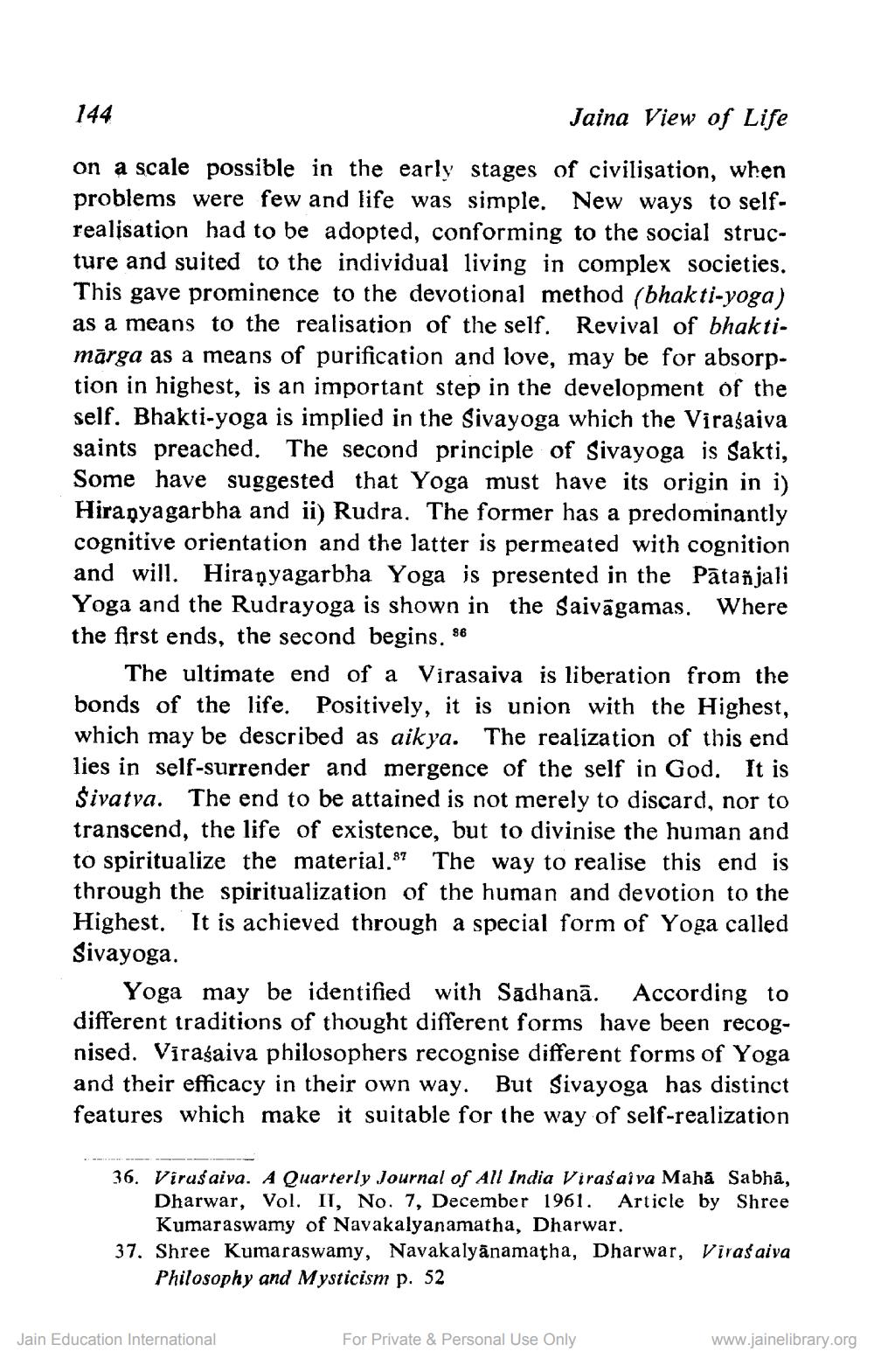________________
144
Jaina View of Life
on a scale possible in the early stages of civilisation, when problems were few and life was simple. New ways to selfrealisation had to be adopted, conforming to the social structure and suited to the individual living in complex societies. This gave prominence to the devotional method (bhakti-yoga) as a means to the realisation of the self. Revival of bhaktimārga as a means of purification and love, may be for absorption in highest, is an important step in the development of the self. Bhakti-yoga is implied in the Sivayoga which the Virasaiva saints preached. The second principle of Sivayoga is Sakti, Some have suggested that Yoga must have its origin in i) Hiranyagarbha and ii) Rudra. The former has a predominantly cognitive orientation and the latter is permeated with cognition and will. Hiranyagarbha Yoga is presented in the Patanjali Yoga and the Rudrayoga is shown in the Saivagamas. Where the first ends, the second begins. 96
The ultimate end of a Virasaiva is liberation from the bonds of the life. Positively, it is union with the Highest, which may be described as aikya. The realization of this end lies in self-surrender and mergence of the self in God. It is Šivatva. The end to be attained is not merely to discard, nor to transcend, the life of existence, but to divinise the human and to spiritualize the material. The way to realise this end is through the spiritualization of the human and devotion to the Highest. It is achieved through a special form of Yoga called Sivayoga.
Yoga may be identified with Sadhanā. According to different traditions of thought different forms have been recognised. Vīraśaiva philosophers recognise different forms of Yoga and their efficacy in their own way. But Sivayoga has distinct features which make it suitable for the way of self-realization
36. Virusaiva. A Quarterly Journal of All India Virasaiva Maha Sabha, Dharwar, Vol. II, No. 7, December 1961. Article by Shree Kumaraswamy of Navakalyanamatha, Dharwar.
37. Shree Kumaraswamy, Navakalyānamatha, Dharwar, Virasaiva Philosophy and Mysticism p. 52
Jain Education International
For Private & Personal Use Only
www.jainelibrary.org




